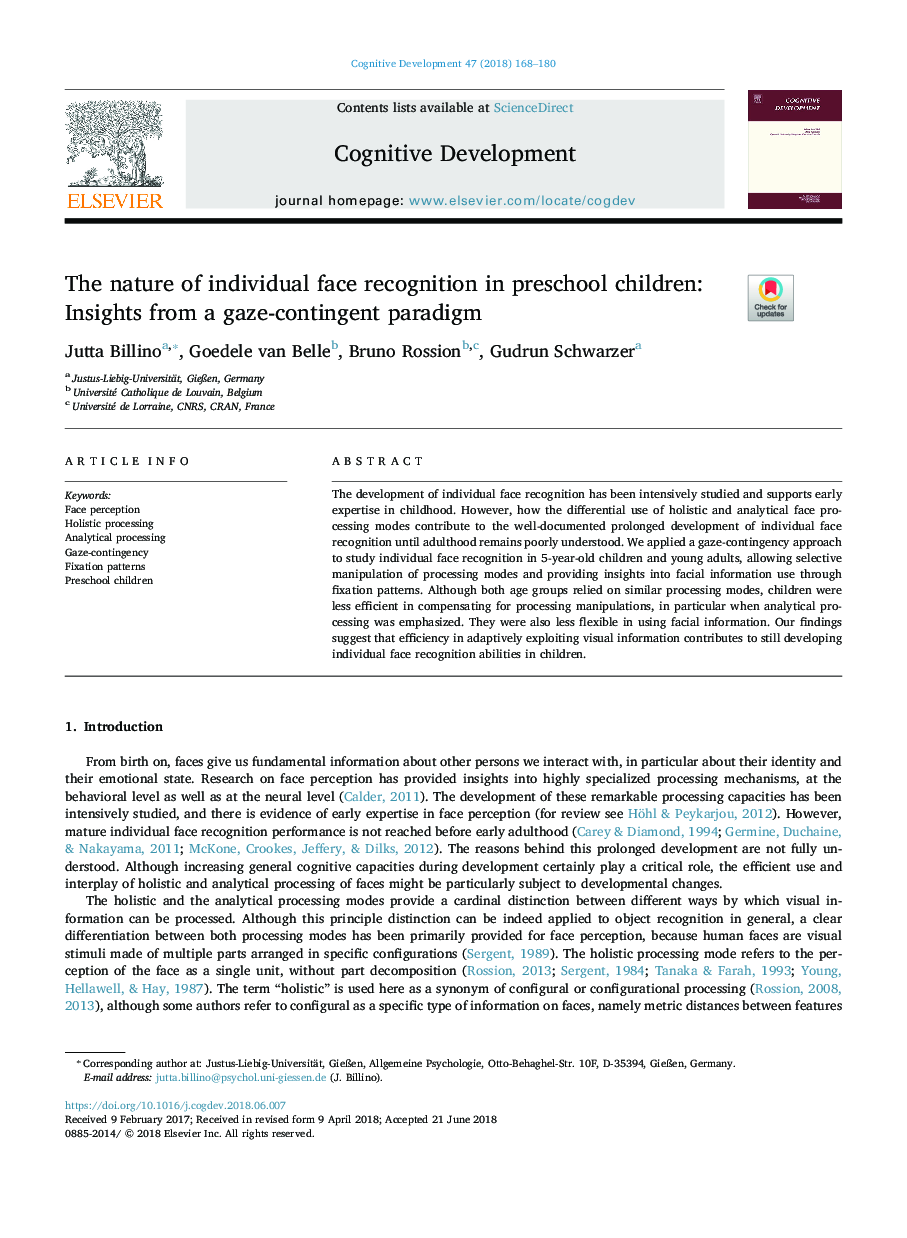| Article ID | Journal | Published Year | Pages | File Type |
|---|---|---|---|---|
| 7272163 | Cognitive Development | 2018 | 13 Pages |
Abstract
The development of individual face recognition has been intensively studied and supports early expertise in childhood. However, how the differential use of holistic and analytical face processing modes contribute to the well-documented prolonged development of individual face recognition until adulthood remains poorly understood. We applied a gaze-contingency approach to study individual face recognition in 5-year-old children and young adults, allowing selective manipulation of processing modes and providing insights into facial information use through fixation patterns. Although both age groups relied on similar processing modes, children were less efficient in compensating for processing manipulations, in particular when analytical processing was emphasized. They were also less flexible in using facial information. Our findings suggest that efficiency in adaptively exploiting visual information contributes to still developing individual face recognition abilities in children.
Related Topics
Social Sciences and Humanities
Psychology
Developmental and Educational Psychology
Authors
Jutta Billino, Goedele van Belle, Bruno Rossion, Gudrun Schwarzer,
